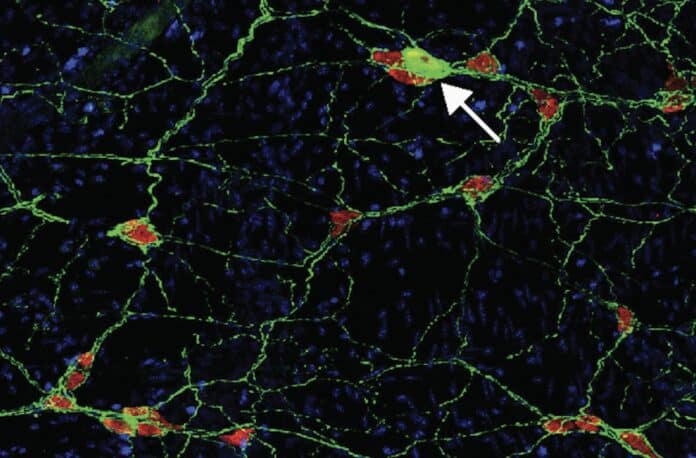Parkinson’s disease is a brain disorder. However, its pathogenesis begins long before diagnosis, and central nervous system (CNS) death is suspected to occur at relatively late stages of the disease.
Several studies have suggested that Parkinsons may begin far away from the brain—in the gut. It even suggested that the first neurological signs appeared years before.
A new study by Columbia University Irving Medical Center offers evidence supporting this claim. It shows that what triggers initial gastrointestinal changes in Parkinson’s could be a misdirected immune attack.
According to scientists, if this is the beginning of Parkinson’s, they could potentially identify who has the disease before it ever reaches the brain and hopefully stop it.
Columbia researcher David Sulzer, Ph.D., became interested in the gut-first theory of Parkinson’s, which was first put forth 20 years ago when his studies suggested that an immunological response may play a part in the disease.
Alpha-synuclein, a protein that can misfold, builds up inside neurons in Parkinson’s disease and slowly kills the cells. Researchers from Sulzer’s group and the La Jolla Institute of Immunology have demonstrated small portions of the misfolded alpha-synuclein can also develop on the exterior of neurons, leaving the neurons open to immune system attack. The immunological attack may be causing the neurons more immediate harm than the intracellular alpha-synuclein deposits.
Sulzer says, “The blood of Parkinson’s patients often contains immune cells that are primed to attack the neurons, but it’s unclear where or when they are primed.”
The gut contains the same neurons, and most Parkinson’s patients experience constipation years before brain symptoms emerge and the disease is diagnosed.
Scientists first developed a mouse that could display bits of misfolded alpha-synuclein on cell surfaces to determine whether or where an immune response to alpha-synuclein can start the disease. After administering alpha-synuclein to the mice, they observed what happened to their brain and digestive systems.
The researchers found that an immune attack on gut neurons caused constipation and other gastrointestinal symptoms that were similar to those seen in the majority of Parkinson’s patients years before they were given the diagnosis. However, they found no signs of Parkinson’s disease in the brain.
Sulzer says, “This shows that an autoimmune reaction can lead to what appears to be the early stages of Parkinson’s and is strong support that Parkinson’s is in part an autoimmune disease.”
The findings also suggest that early identification and interruption of an immune response in the stomach could stop Parkinson’s disease by preventing a later attack on the brain’s neurons.
However, it’s unclear at this time how much of an impact the immune system has on the Parkinson’s brain. If scientists can determine why the brains of their mice did not exhibit any Parkinson’s symptoms, the solution to that question might become more obvious.
The research speculates that the reason immune cells in their mouse model aren’t getting to the brain is that the mice are still young, and the blood-brain barrier has yet to weaken enough for immune cells to pass through. Mice that experience problems in the gastrointestinal and nervous systems may result from breaking down the barrier or hastening aging.
Sulzer says, “Our ultimate goal is to develop a model of Parkinson’s disease in mice that recreates the human disease process, which doesn’t exist right now.”
“That will be critical in answering questions about the disease we can’t explore in people and eventually developing better therapies.”
Journal Reference:
- Francesca Garretti, Connor Monahan, Nicholas Sloan, et al. Interaction of an α-synuclein epitope with HLA-DRB1∗15:01 triggers enteric features in mice reminiscent of prodromal Parkinson’s disease. Neuron. DOI: 10.1016/j.neuron.2023.07.015
